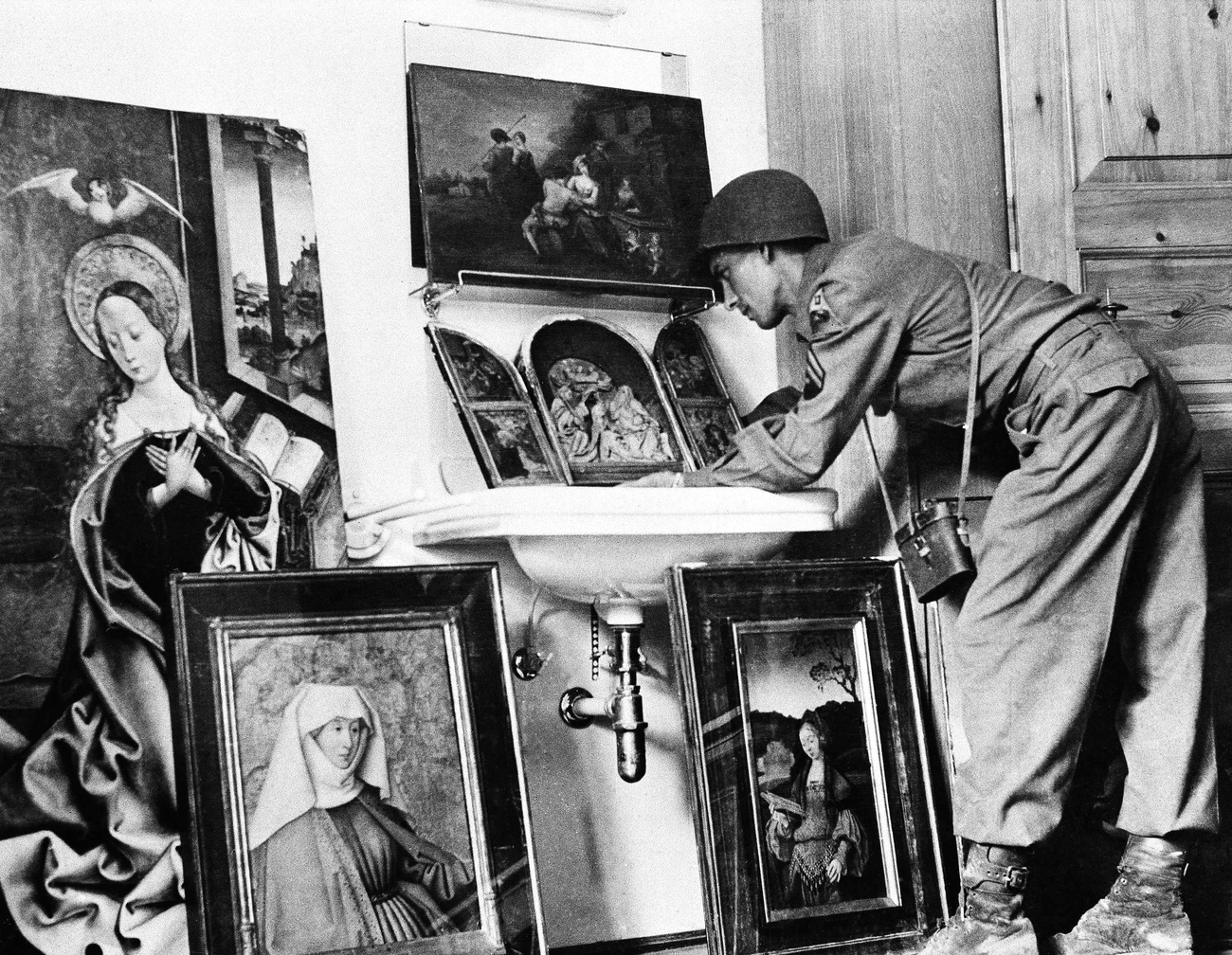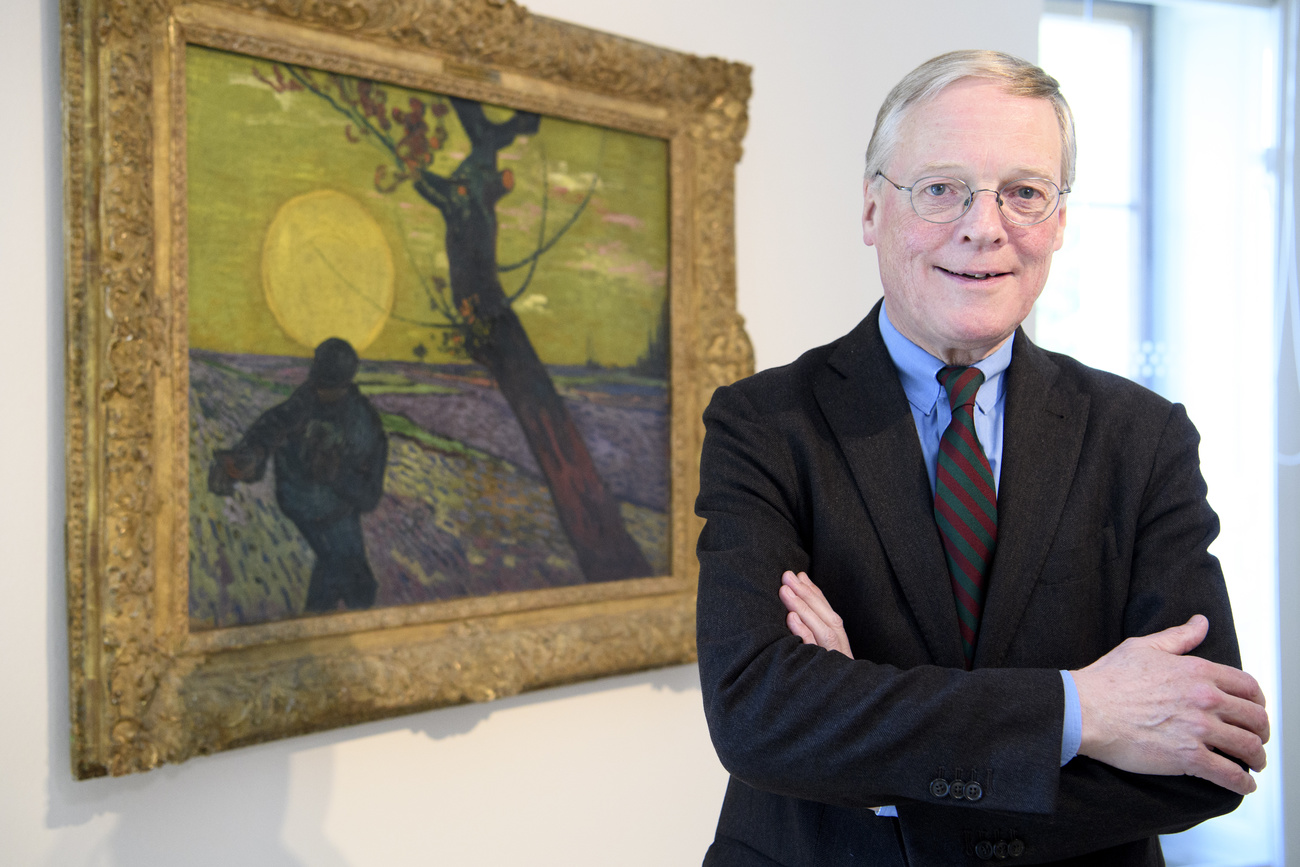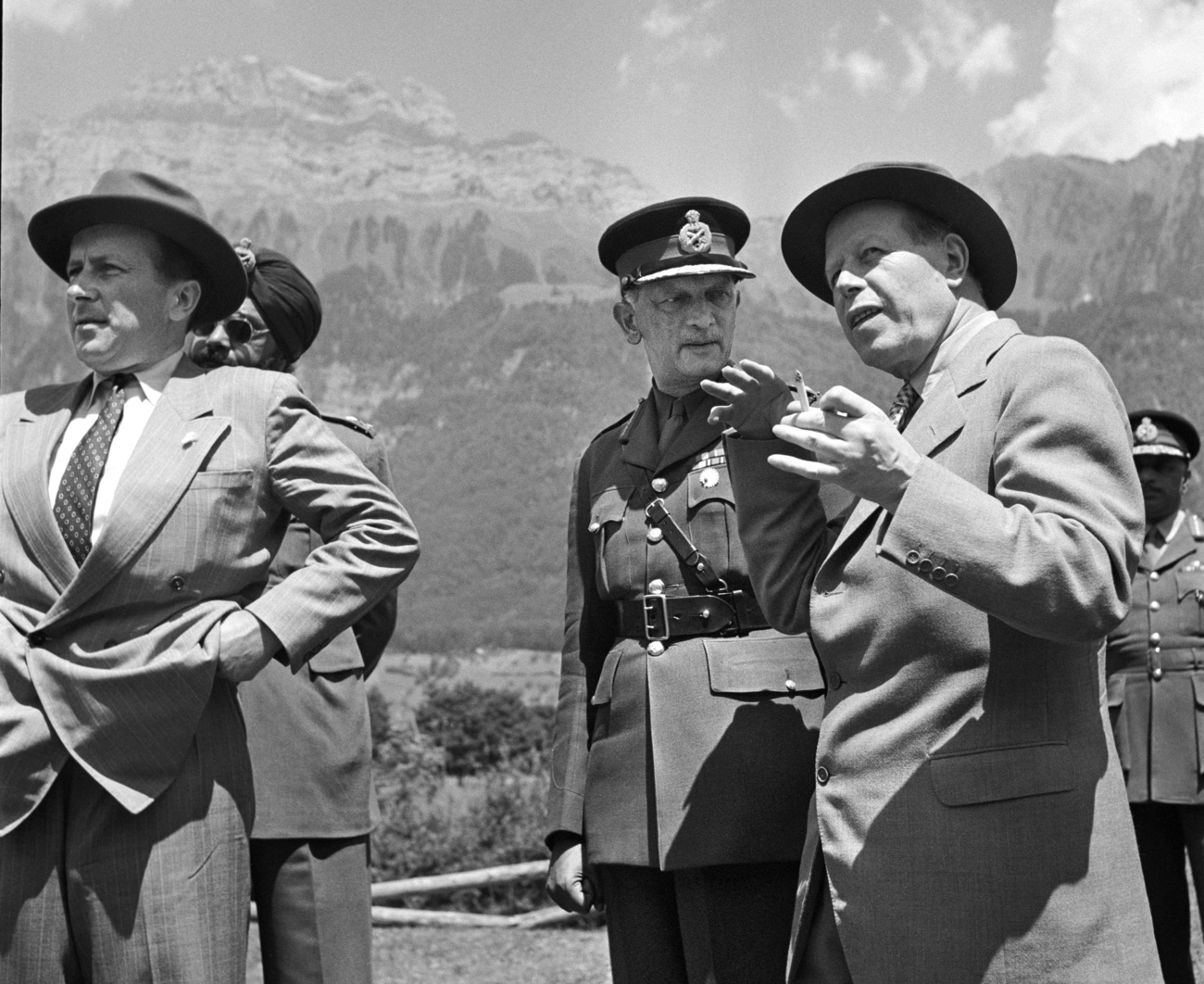
Nazi-looted art: Zurich museum and foundation agree to more transparency

A heated debate about the origin of the 203 works of art on display at the Kunsthaus Zurich has resulted in the museum of fine arts and the Bührle Foundation, which loaned the paintings, agreeing to disclose their contracts.
The question is no longer whether but when the contract will be made available for public inspection, according to SonntagsBlick, which based its reportExternal link on several sources close to the matter.
The controversy is about the collector of the paintings: Emil G. Bührle, who died in 1956, funded his collection with arms sales – to Nazi Germany in particular. Members of an independent panel of historians recently described the situation at the Kunsthaus Zurich as an “affront” to victims of Nazi looting.

More
An ‘affront’: researchers react to the Bührle Collection in the Kunsthaus Zürich
“A group of like-minded historians and publicists has succeeded in putting politics, the Kunsthaus and the Bührle Foundation on the defensive to such an extent that the Foundation’s provenance research is set to be appraised externally,” SonntagsBlick said.
It is expected that this step will be taken at the beginning of next year, it added.
“The aim of the new strategy is obviously to restore lost credibility. More transparency can certainly do no harm,” it said.
“In addition, the previous contract is being replaced by another. The parties are currently negotiating the new deal, away from the noise of the controversy that has made waves internationally. The plan is that [the new contract] will also be made public – and, according to reports, will give the Kunsthaus more flexibility in curating the Bührle works.”
The Bührle Foundation had no comment when approached by SonntagsBlick. The foundation and the Kunsthaus Zurich will hold a press conference on Wednesday to present their positions.

More
Bührle Foundation director to step down
Unclear provenance
The Kunsthaus could certainly do with some positive headlines. Since it opened a new extension in October, in part to house the works from the Bührle Collection, it has been widely attacked in the press and in a new book by Erich Keller, Das kontaminierte Museum (The Contaminated Museum).
Keller has his doubts about the research done on the provenance of the Bührle paintings, and he makes his opinion clear that there is still Nazi-looted art among them.

More
Historian shows Nazi-era links behind prestigious art collection
Switzerland served as a hub for Nazi-looted art before and during the Second World War. Some Swiss museums have reached settlements with the heirs of collectors whose art was looted by the Nazis or sold under duress. The Kunstmuseum Bern, which inherited the controversial collection of the reclusive hoarder Cornelius Gurlitt, has returned several works to descendants of the original owners.

More
Bern museum to give up 29 works from Gurlitt collection

In compliance with the JTI standards
More: SWI swissinfo.ch certified by the Journalism Trust Initiative





























You can find an overview of ongoing debates with our journalists here . Please join us!
If you want to start a conversation about a topic raised in this article or want to report factual errors, email us at english@swissinfo.ch.